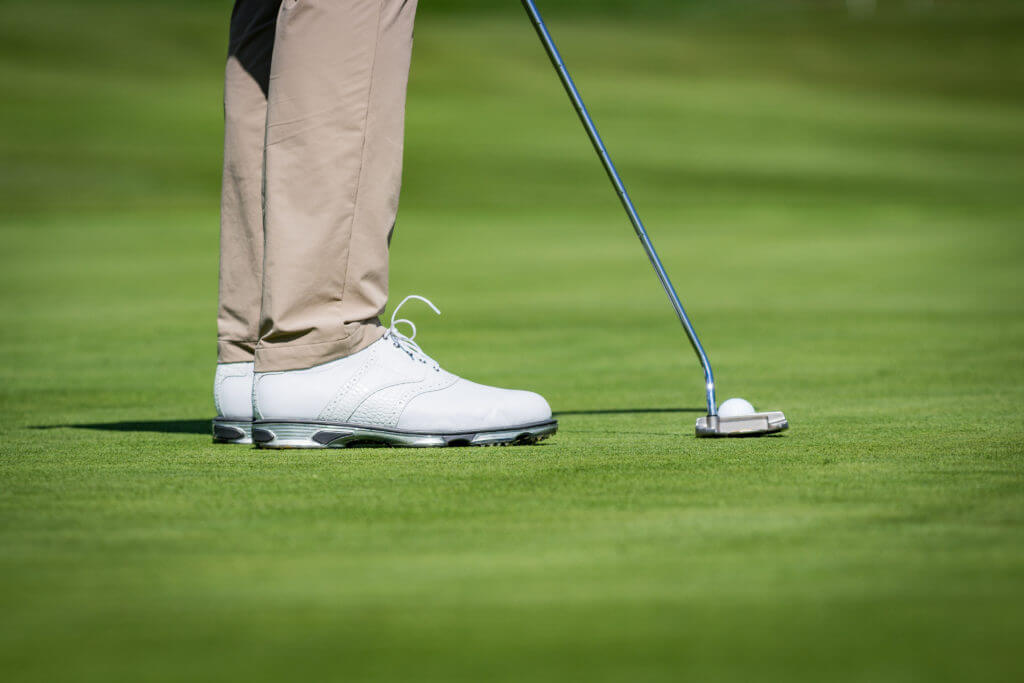ADELAIDE, Australia — Golf may have a reputation of being a sport for the rich or retired, but a new study finds that more people dealing with arthritis should pick up a putter. Researchers in Australia have found that people with osteoarthritis who golf experience less psychological distress as well as better overall health than others with the condition who don’t golf.
University of South Australia researcher Dr. Brad Stenner and his team surveyed 459 golfers with osteoarthritis and compared the results to over 16,000 Australians from the general population. More than 90 percent of the golfers rated their health as “good,” “very good,” or “excellent.” Just 64 percent of the respondents in the general population with osteoarthritis said the same.
Moreover, the study finds that three times as many non-golfers with this condition (22%) reported high to very high levels of psychological distress in comparison to golfers with osteoarthritis (8%).
What is osteoarthritis?
Osteoarthritis (OA) is a degenerative joint disease characterized by the gradual breakdown of cartilage, the protective tissue at the ends of bones that allows for smooth and pain-free movement in a joint. As the cartilage wears away, the bones in the joint may rub against one another, leading to pain, stiffness, swelling, and a reduction in joint function. The most commonly affected joints include the hands, knees, hips, and spine, although any joint can be affected.
Several factors contribute to the development of osteoarthritis, such as aging, genetics, obesity, joint injuries, and overuse of certain joints. It is the most common form of arthritis and a leading cause of disability in older adults. While there is no cure for osteoarthritis, treatments are available to manage symptoms, reduce pain, and improve joint function. These may include lifestyle modifications, physical therapy, pain-relief medications, and, in severe cases, surgery.

With that in mind, Dr. Stenner, a lecturer and occupational therapist, notes that golfers stay active due to the amount of walking the sport requires from hole to hole. Golfers can also experience a range of social benefits while playing with others.
“People who play golf are often walking 8-10km per round and, as such, are regularly meeting or exceeding recommended physical activity guidelines, which is known to reduce the risk of cardiovascular disease, diabetes, obesity and improve metabolic and respiratory health,” says Dr. Stenner, a member of the Alliance for Research in Exercise, Nutrition and Activity (ARENA), in a university release.
“There are also significant benefits to mental health and wellbeing. Our research has highlighted the important role that golf has in building friendships, contributing to community, and bringing a sense of belonging, all of which are known to contribute to mental health and wellbeing.”
Golf is a ‘low-impact’ way of staying active
“Lower impact activity such as golf can assist in maintaining activity whereas higher impact activities such as running, jogging and gym may place significant stress on the joints, contributing to increased symptoms and pain,” Dr. Stenner explains.
“There is a growing body of evidence that golf reduces the risk of many chronic conditions such as obesity, diabetes, and cardiovascular disease, and may contribute to the management of these illnesses, which in turn may lower the longer term health and medical costs. From a mental health point of view, playing golf is associated with improved wellbeing and lower levels of psychological distress, and this is an important consideration for older adults.”
“Very little is known about the relationship between golf and health and there is so much more we need to find out,” the researcher concludes.
Here are 3 other reasons golf is good exercise:
- Muscle engagement: Swinging a golf club engages various muscle groups, including the core, upper body, and lower body muscles. This helps improve muscle strength, flexibility, and balance.
- Coordination and balance: Golf requires precise coordination and balance to execute accurate shots. Regular practice can enhance these skills, which can be beneficial for overall physical fitness and injury prevention.
- Outdoor exposure: Golf is typically played outdoors, providing players with fresh air, sunlight, and exposure to nature. Spending time outdoors has been shown to improve mood, boost immune function, and increase vitamin D levels.
You might also be interested in:
- Best Golf Balls
- Best Golf Shoes
- Best Golf Clubs
- Best Men’s Golfers of All Time
- Best Golf Courses in America
The findings are published in the Journal of Science and Medicine in Sport.

